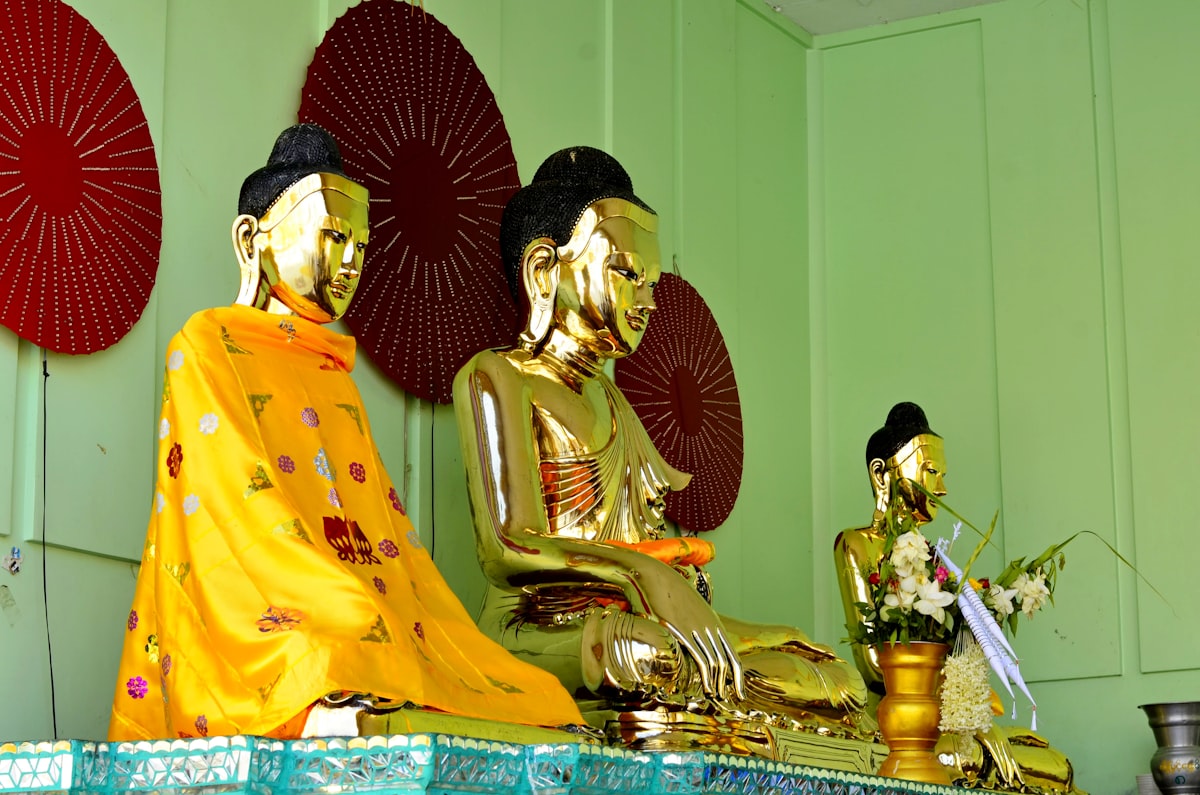Rangoon
“I know those guys,” my father would say. “They’re just a glorified referral service.”

by Sam Milligan
The three sisters who run Rangoon aren’t sisters at all and I’m pretty sure there are only two of them, plus the old man in the kitchen, and no one else. No one else in the restaurant, no one else even walking by in the street, just the two old women and their old man cook and my family. They’re closing Rangoon, or they will soon. They’ll repaint the shingled overhang. Right now it’s a faded pink, the huge block letters something resembling yellow, but when the restaurant closes and they sell it I’m sure the overhang will be repainted, the shingles stripped, and everything redone so it looks like nothing was there before and nothing could possibly replace what is there now. I don’t really intend to find out; there’s nothing but a parking lot in Chinatown now that means anything real to me.
Nearly every Saturday night when I was little, my parents and my Aunt Julie and Uncle David and I would pile into one car in Cherry Hill and fight down Route 38, past the Benihana where we all got food poisoning that one time and the IKEA-sized liquor store and the old Roy Rogers my mom worked at as a teen and the abandoned LukOils and the roller rink and the billboards for injury attorneys (“I know those guys,” my father would say. “They’re just a glorified referral service.”) until we reached the Ben Franklin bridge. Sometimes there’d be a Riversharks game going on and I would watch out the window as we passed above the stadium, hoping to see a fly ball caught up in the lights for just a second before it plunged out of view.
Every time, we parked in the same lot. It had no name. It was five, then ten, then fifteen dollars to park in. It was always half-empty, always filled with trash or snow or trailers with undetermined purpose, always fixed under the watchful eye of a thumbprint-shaped office building with a thousand brown windows. We would park and all wait at the car while someone went to the kiosk to pay. I could never tell if that building was abandoned or if just everything that went on inside, all the important bustle and change and people in and out, simply never affected what you could see from the parking lot.
Once we parked, we’d go have dinner. Rangoon, Sang Kee, Lakeside Chinese Deli. It was nearly always one of those three. I remember others, definitely. A place in a basement that served hot chicken wings. A place we had to walk through a Macy’s to get to. A place with big fish tanks in the outdoor windows, so huge and deep and blue and full of swirling, doomed creatures that you couldn’t actually see anything of the inside. Some places that only accepted cash, some places with gift shops attached.
But nothing really measured up to Rangoon, Sang Kee, or Lakeside Chinese Deli. At Sang Kee, you could get amazing Peking duck with crisp fresh greens and papery pancake wraps. Douse it in hoisin sauce, drink tea out of thick white cups and watch the train race cars across the bridge. I remember Lakeside Chinese Deli was dank, low-ceilinged, with a menu painted on the wall in big red letters. I learned what bok choy and gyoza were, ate sesame balls, and ordered the same pork fried rice every time. If we came with more than our usual five people, we might get treated to one of the big tables with the lazy Susan in the middle, spinning noodles and brown plastic water cups and tiny plates around to share. And eating at Rangoon felt like eating with family you only saw every once in a while. The hostess would rub my head and ask about my swimming lessons or my uncle’s cousin or the concerts we’d been planning on going to the last time we’d been there and whatever other detail driftwood had been passed along visit by visit. We’d eat thousand-layer bread with spicy potato curry, mango chicken with puffed up crackers soaked in orange sauce, kung pao beef with peppers.
It’s the way a place changes that makes remembering these things all the more important and all the more impossible. Sang Kee went first; not disappearing exactly but expanding. Suddenly there were four or five of them in Philly, a stand in Reading Terminal Market, and even an offshoot across the river in Jersey, just five minutes from my house. It lost its rarity, and we stopped going. Then Lakeside Chinese Deli, shuttering the same year the Phillies won the World Series. My brother was born. Aunt Julie and Uncle David started taking a separate car, meeting us less and less, then not at all. They changed phone numbers, they maybe moved, some conflict the kids weren’t allowed to know about. I moved to Maine, then D.C. My parents out to Colorado. But when we heard that Rangoon was closing after Thanksgiving, the sisters retiring, we decided to go one last time. But now they’re take-out only, stumbling to the end with no extra staff, and we’re standing in the foyer, and there’s nothing to do but take our food – the same order as always – and scurry back through the cold to the parking lot and ask: where to next?
Sam Milligan (he / him) writes when he isn't fishing his cats out of the kitchen sink or dreaming up new variations of chocolate chip cookies. He's somehow getting worse at parallel parking over time. His work has appeared or is upcoming in Rejection Letters, Many Nice Donkeys, Malarkey Books, Mid Lvl Mag, and elsewhere. He is @sawmilligan on Twitter.



